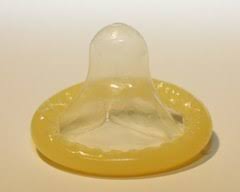
Experts worry that infections could spread over phoney condoms.
Using phoney or inferior condoms might spread infections like the Human Immunodeficiency Virus and other STDs, according to doctors who specialise in maternal health and public health.
According to the experts, counterfeit condoms frequently lacked the requisite quality and dependability, raising the possibility of breakage or slippage during sexual activity and spreading STDs.
The doctors emphasised the need of buying condoms from reliable suppliers, arguing that relying on inferior products could jeopardise public health initiatives meant to lower STI rates and encourage safe sex practices.
Nigerians were warned on Thursday by the National Agency for Food and Drug Administration and Control about the illicit distribution and sale of Foula Condoms, an unregistered brand of condoms in Nigeria.
NAFDAC stated officials from the Post-Marketing Surveillance directorate discovered Foula condoms in Abakaliki, Ebonyi State, and Zango in Katsina State, noting that the discovery was made during a Risk-Based post-marketing Marketing Surveillance study on registered condoms in Nigeria.
“Condoms are a proven effective barrier method that can be used as a dual-purpose method for both prevention of unintended pregnancy and protection against HIV and other sexually transmitted infections. Illegal distribution or sale of unregistered condoms poses a risk as the safety, quality, and efficacy of the products are not guaranteed,” it added.
The physicians said that fake and substandard condoms put the users at risk of STIs and unintended pregnancies as those condoms may not provide adequate protection.
A Consultant Gynaecologist and Obstetrician at the Federal Medical Centre, Epe, Lagos State, Dr Cynthia Okafor said the use of fake or substandard condoms increases the risk of infections and unintended pregnancies.
She noted that these inferior condoms often fail to meet quality and reliability standards, significantly increasing the likelihood of breakage.
Okafor also said this not only heightens the risk of unintended pregnancies but also facilitates the transmission of sexually transmitted infections, saying that the inadequacy of these products compromises their intended purpose, exposing users to serious health risks.
As a result, she pointed out, using inferior condoms can have serious negative effects on both public and individual health, undermining initiatives to lower STI incidence and encourage safe sexual behaviour.
According to Okafor, "the consequences of using inferior condoms go beyond personal health; they jeopardise larger public health programs meant to encourage safe sexual behaviour and lower the prevalence of STIs."
Furthermore, due to their inferior quality, these condoms may contain invisible micropores or holes that allow viruses like HIV and Hepatitis B and C to infect one or both partners.
In addition, you are unable to determine the components—including lubricants—used in the production of condoms that are counterfeit or of poor quality. Naturally, there are common lubricants to be used, but these fake ones may have petroleum lubricants that may be harmful to the women when inserted in their vagina.”
She warned that the impact of this may be severe to some women, and while it may be mild in others depending on the body system, noting that some may experience itchy rash around the region, while others will have different forms of irritability.
Okafor continued, “The widespread availability of counterfeit or low-quality condoms undermines the hard-earned progress in sexual health education and preventive measures.”
She emphasised the need for individuals to purchase condoms from reputable sources, ensuring that these products are certified to meet established safety standards.
Okafor noted that awareness campaigns were essential to educate consumers about the dangers of using non-certified condoms and the importance of verifying the authenticity of sexual health products.
She urged users to remain vigilant and look for proper labelling and quality assurance seals on the products that they are buying to ensure that they are using reliable protection.
“Using fake condoms can mess up a woman’s birth-spacing if the protection fails those families that rely on condoms for birth-spacing or birth control. It has a wide range of issues, and this is why I will tell Nigerians to be careful when buying condoms,” Okafor added.
Also, a Professor of Public Health at the University of Ilorin, Kwara State, Tanimola Akande, emphasised that unregistered or fake condoms may not be able to protect the users.
Akande, an epidemiologist, said, “Unregistered condoms are likely to be fake or substandard. They are not likely to meet the quality expected.
“Such condoms may be unable to protect users. This may lead to unwanted pregnancies and sexually transmitted infections.”
He emphasised the importance of registering all manufactured and imported condoms in the country to at least guarantee the safety of the users.
"To ensure the products are safe for users, it is the right practice for condom manufacturers and importers to obtain NAFDAC approval and number before they are sold," he continued.





